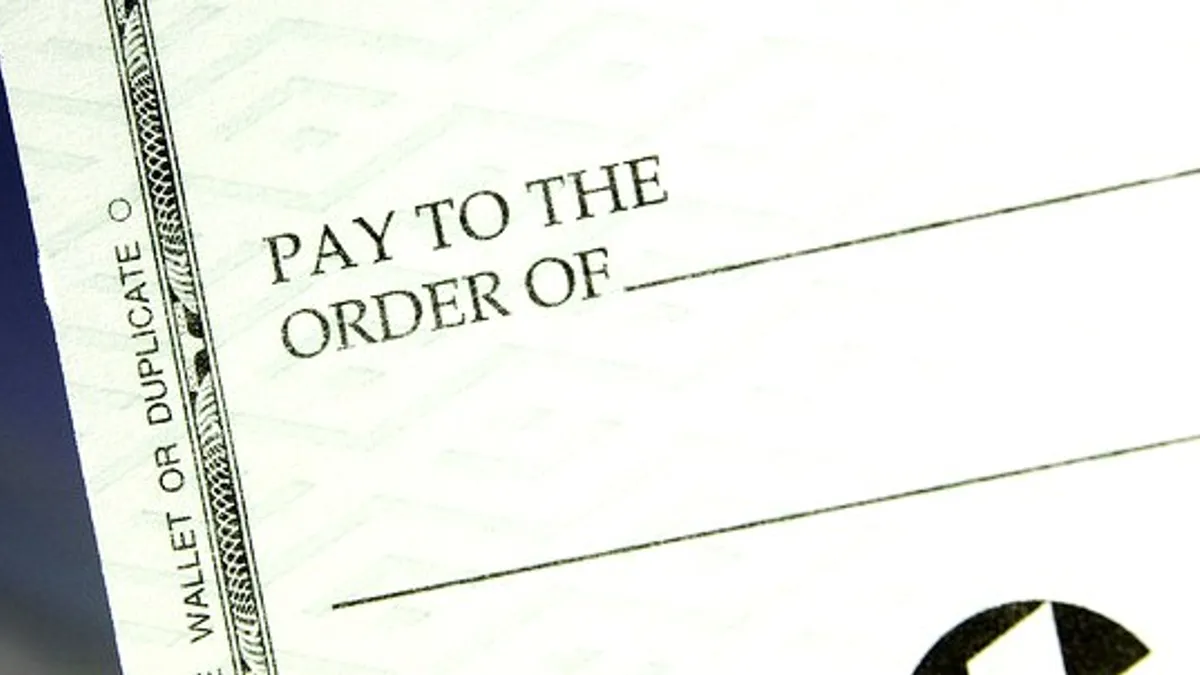Dive Brief:
- Average starting salaries for teachers with a bachelor’s degree increased slightly last year from $38,701 to $39,249, but accounting for inflation, the average classroom teacher’s salary in the U.S. has declined 4.5% since 2009-10, according to the National Education Association’s (NEA) annual salary benchmark data, released Monday.
- Data collected from 11,675 of the nation’s 14,007 school districts shows 60% of teachers work in districts with a starting salary of at least $40,000. But 288 districts in the U.S. pay teachers less than $30,000 to start. More than 75% of districts in the Northeast pay starting salaries of over $40,000, compared to less than 20% in the Midwest.
- In 855 districts in the nation, teachers at the top of the pay scale can earn over $100,000. But in 1,027 districts, the highest-paid teachers earn less than $50,000, a figure that points to the "pay gap" between educators and those in other professions with similar experience, NEA President Lily Eskelsen García said during a press call Friday.
Dive Insight:
The release of the data comes as more teachers — this time in both North Carolina and South Carolina, as well as in Chicago charter schools— are planning to walk out Wednesday, with higher salaries among the demands from educators in all three cases. While the NEA data shows average salaries have increased in North Carolina, from $51,231 in 2017-18 to an estimated $53,975 this year, the North Carolina Association of Educators is also calling for more social workers, counselors and nurses, as well as expansion of Medicaid.
The state was also part of the initial wave of teacher protests last year when roughly 20,000 teachers staged a one-day walkout at the state capitol in Raleigh, forcing districts to close schools. The protest also focused on teachers taking on second jobs to cover expenses and a decline in state education spending.
In the press call, Eskelsen García said she met a Maryland teacher working two extra jobs — one of them for a catering company — when she attended an event in the offices of U.S. House Speaker Nancy Pelosi following the State of the Union. She added that because of the pay gap, “People who want to be teachers are going into other professions.”
In South Carolina, the state Senate is proposing a 4% raise instead of the 10% increase teachers are demanding. As with other state and local strikes around the country this year, small class sizes and limiting the growth of charter schools are also among the issues summed up in the #RedforEd movement. In January, some South Carolina teachers rallied at the state capitol in Columbia to ask for higher pay and more input into state policy. According to WLTX, a spokesman for South Carolina Gov. Henry McMaster has said the walkout will disrupt families' lives and "send the wrong message."
The charter school educators, who are members of the Chicago Teachers Union, work for multiple charter operators. Their demands include being paid on par with Chicago Public School Teachers and adding services for special education students, English learners and immigrant students.













